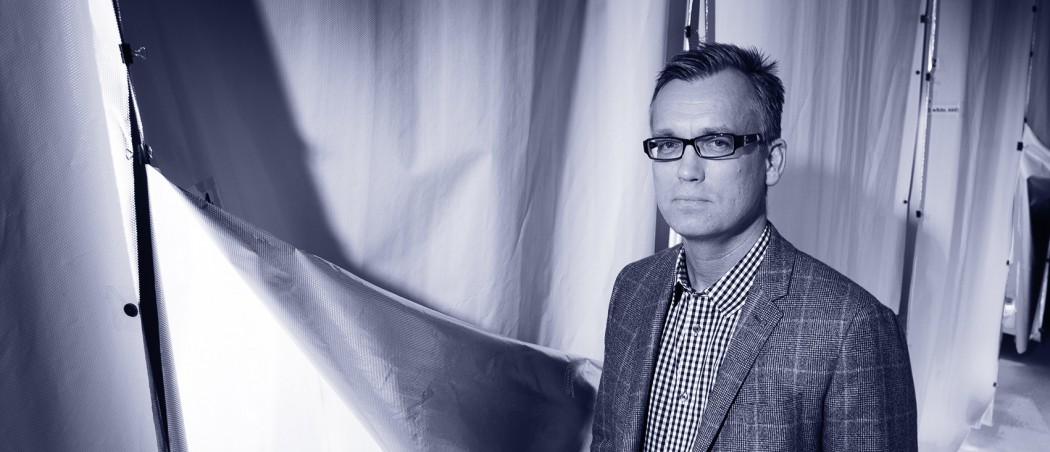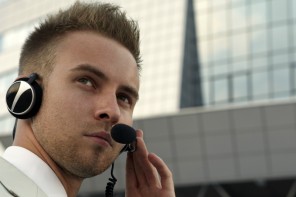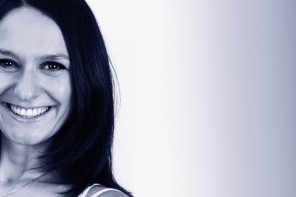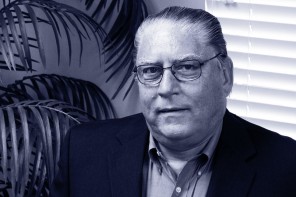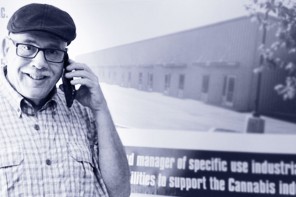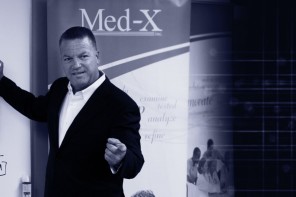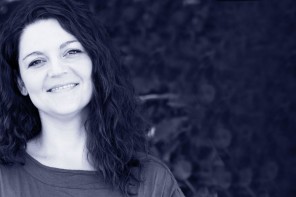Staffan Hillberg, CEO of Heliospectra, is a seasoned, Swedish-based entrepreneur whose in-depth, practical experience is specialized towards international companies who are financed via venture capital. Staffan cut his entrepreneurial teeth raising, setting up and managing venture capital funds while also working through the processes of buy-outs, corporate finance, and mergers and acquisitions. With the help of Staffan’s experience with high technology companies, like Apple, Heliospectra, a company that has been around since 2006, has become one of the leading developers and suppliers of energy-efficient LED grow lights for greenhouses, indoor cultivators, and researchers. However, as many in the cannabis industry already know, success isn’t a given and Staffan has had to overcome hurdles to get to where he is today. What were those hurdles and how can you learn from his journey? Staffan recently took some time to tell us all about it.
Let’s start at the beginning. Why did you join the cannabis industry?
Heliospectra is not really a new company. We started in 2006, performing extensive research on plants and the effect of light. Eventually, we started selling our first grow light to the high-end research industry, where you have universities, space agencies, AgTech companies as well as the traditional greenhouse industry companies that grow herbs, vegetables, and or flowers. Coming from Sweden, cannabis has always been a very taboo subject as everybody considers it a drug.
Since we started Heliospectra, the passion has always been about how to grow plants more efficiently while creating a much higher quality product regardless of the type of plant.
It was not until we started understanding the medical benefits of cannabis while seeing such companies as GW Pharma selling prescription based cannabis-derived drugs in Europe, that we started to approach growers in North America. As legalization was starting to happen, we saw great potential. For me personally, it was when Steve Deangelo showed us his Harborside dispensary, which is state-of-the-art and professionally organized, and I actually met people who were sick and vouched for the positive effects.
Has any of your professional history carried over to what you are doing now?
I have had the fortunate experience of working for several international high technology companies such as Apple. Plus, running a few startups from writing the first business plans to raising the capital in several stages, as well as recruiting and managing staff in several countries. This eventually led to working as a venture capitalist where I ended up sitting on the other side of the table and exiting companies both in trade sales and IPOs. Plus, I have a deep technical understanding in education and practice, and I am still a geek at heart. The combination of all of this allows me to have both short-term and long-term perspective and an understanding of the details involved in the different roles in a company so that I can communicate with all parties involved.
You’ve worked with a number of start-ups, can you share with us an instance in which a project failed or hit a roadblock? What did you do to overcome it? Move on or fix the problem?
My philosophy is that you have to give it your best and sometimes you fail, which is ok. This can be a fault of your own or issues that are out of your control. The most common issue I have experienced is not trusting my gut feeling and recruiting the wrong people. In one company that I was the CEO and founder of, we recruited a new CEO who turned out to be a total disaster. The problem here is that we relied on other people’s judgment and didn’t trust our own.
My philosophy is that you have to give it your best and sometimes you fail, which is ok.
The solution was easy, get rid of the person and put in a new one. I’ve also been involved as a board member in two companies that we had to put in bankruptcy and move on. One had to do with the shareholders not being able to agree on the strategy and the other was an entrepreneur who was running too fast with little administration and we as a board were not strong enough to enforce our views.
What is your main focus with Heliospectra right now?
Since we started Heliospectra, the passion has always been about how to grow plants more efficiently while creating a much higher quality product regardless of the type of plant. This still remains, but the focus of my energy will vary depending on what task is at hand. For instance, a year ago the focus was on the IPO, now the focus is very much on sales and marketing and building up an organization that can scale.
How do you view your work ethic?
I have always worked hard and long hours as a typical entrepreneur. Over the years, I have learned to delegate and hire individuals that can stand on their own feet and take the initiative. I really enjoy mentoring people so that they can grow.
You’ve called yourself a ‘typical entrepreneur’ who works long, hard hours. But you follow that up with a comment on delegation and impactful hiring. What have you learned about the need to delegate and successfully hire over your career as an entrepreneur?
I believe that, in any company, you have to try to delegate as much as possible. This is provided that you have hired the right people and you can trust their judgment. It’s a terrible situation having to go back and double-check other people’s work. So, it boils down to finding the best people and not being afraid to hire people who are smarter than yourself!
What do you consider your weakness as an entrepreneur? Your strength?
A trait that can be both a strength and a weakness is being an optimist. Most entrepreneurs are very optimistic, if they weren’t they would never go down the path the do. However, sometimes you need to be more realistic. Over the years, you learn how to deal with this and use it to your advantage.
You talked about optimism vs being realistic. Could you give us an example that you’ve dealt with?
One typical example is the company composed of engineers who believe they have the best product in the world. They are so optimistic about it that they don’t see the problems involved in penetrating the market. This is an atypical situation where there might be barriers of entry in the sales channels or that your product needs a lot of supporting technology and services around it that you cannot provide. Another example that I’ve been guilty of myself is being so optimistic about a company or product and believing that it’s enough to work hard and not being realistic about needing help and actually asking for that help.
How has working in the cannabis industry impacted your professional life? Have you faced any hardships because of it?
My view on the pharmaceutical industry and the medical profession has changed. I am much more critical of the traditional medical industry as I see how, in some instances, it is being driven by money rather than helping the patients. About 10 years ago, I started being heavily involved in Ashtanga Yoga and this started to open up my mind to alternative medicines as well as eating more vegetarian, I believe this has helped me be much more open towards cannabis and allowed me to listen and understand rather than criticize.
Most entrepreneurs are very optimistic, if they weren’t they would never go down the path the do. However, sometimes you need to be more realistic.
I haven’t had any personal hardships, more people being curious. However, we have had many discussions within the company on all levels and we have to respect people with differing views. I find it truly encouraging being involved in this evolution.
How are you differentiating yourself from the competition?
Heliospectra has a unique product offering as we are selling a systems-based solution. This starts with an adjustable Internet-of-Things grow light where we can change the spectrum on the fly in order to control how the plants are growing while saving vast amounts of energy. Then, the customer can add software and sensors to the system to make it more intelligent and create better plants and further savings.
Together we have created a positive atmosphere where everybody can contribute and see their ideas come to life.
It’s very easy to get started with the system and then the customer can grow and expand the system over time. We even have a patent on a complete biofeedback system where we can sense how the plants are using the spectrum and use that information to control the lights.
How do you find inspiration in this industry? What have you found that has inspired you?
Being able to make a difference inspires me. The whole science around the medical effects from Cannabis is wonderful. We have been working closely with Dr. Sue Sisley over the last year and following her work and enthusiasm for helping war veterans and others have been a life changing experience. There are so many others like her that put all their heart and soul into this business.
What’s the best advice you’ve ever received?
Treat all people with respect and don’t give up.
Where do your great ideas come from?
The ideas and inspiration we have at Heliospectra does not come from one individual. It is the work of a dedicated team of people. Together we have created a positive atmosphere where everybody can contribute and see their ideas come to life.
What will we be seeing from you and Heliospectra in the coming future?
Adoption of our technology from more and more customers. But don’t be surprised if we come out with some very new innovative technology over the next few years that ties into our system based approach.
What stigmas have you faced in dealing with the cannabis industry? How did you react and handle the situation? Join the conversation and comment below!

